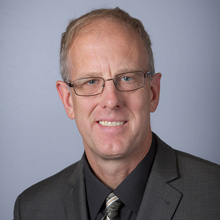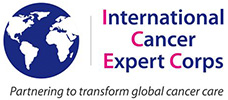
Daniel G Petereit, MD, FASTRO
Dr. Petereit developed the NCI-funded Walking Forward (WF) Program that has been in existence since 2002. WF was developed to address the ominously high cancer incidence and mortality rates that American Indians (AIs) suffer who live in Western South Dakota. Rapid City Regional Hospital serves approximately 70,000 AIs who live on the Pine Ridge, Rosebud, and Cheyenne River Reservations, as well as the urban AIs in the Rapid City area.
WF has been investigating methods to improve these cancer disparities through the following methods:
- culturally-tailored patient navigation program that facilitates access to innovative clinical trials, in conjunction with a comprehensive educational program encouraging screening and early detection;
- surveys to evaluate barriers to access;
- clinical trials focusing on reducing treatment length as AIs live a median of 140 miles from the cancer center in Rapid City with an emphasis on brachytherapy and IMRT (intensity modulated radiotherapy),
- a molecular study (ATM – Ataxia telangectasia mutation) to address whether there is a molecular profile that increases toxicity risks; and
- a recently funded project using mHealth (mobile) technology to address the high smoking rates in this population.
To date, over 4,000 AIs have participated in various WF research studies. Critical outcomes include the establishment of trust within tribal communities, identification of barriers to cancer screening, creation of research infrastructure, higher completion rates and patient satisfaction for patients undergoing cancer treatment, enrollment of patients on trials with excellent clinical outcomes, the establishment of new research partners, and publication of 30 manuscripts detailing the process and outcomes of WF. Recent analysis suggests that AI cancer patients with screen-detectable cancers are now presenting with earlier stages of disease and higher cure rates.
Dr. Petereit also has a leadership role with the American Brachytherapy Society and is an exam developer for the American Board of Radiology for gynecologic cancers. In addition, he has worked with the International Atomic Energy Agency (IAEA) to develop treatment guidelines for cervical cancer and the use of brachytherapy for other malignancies. His role with the ICEC is to implement some of the lessons learned from WF and to assist in implementing the ICEC objectives.

